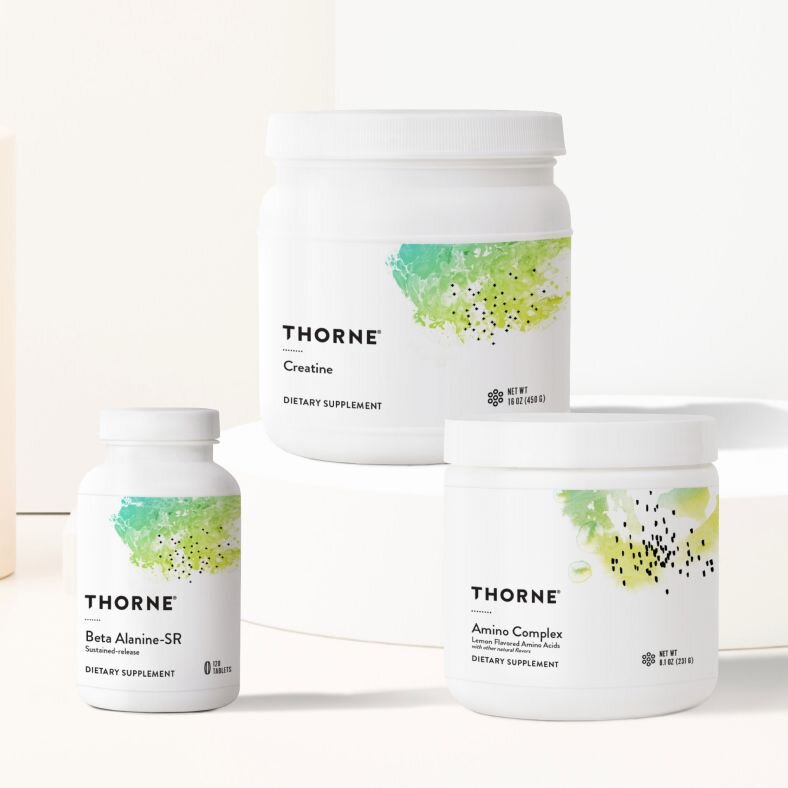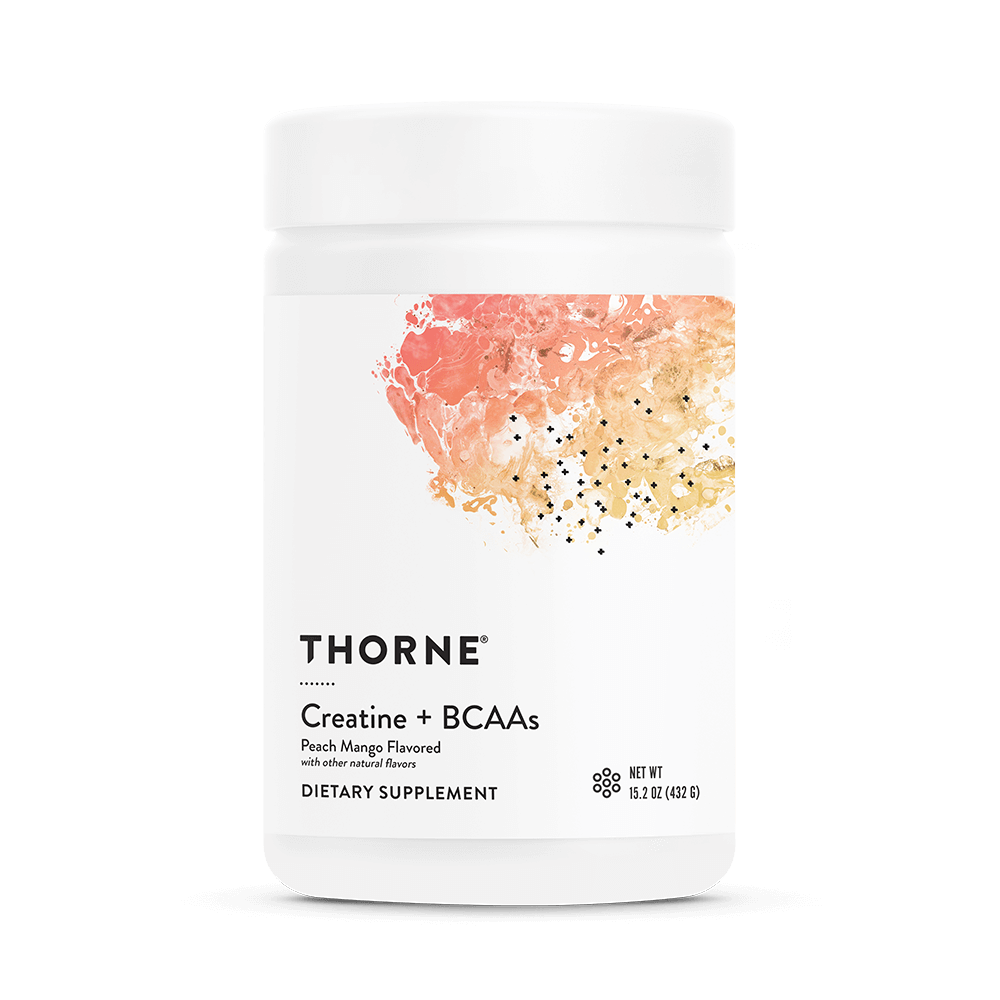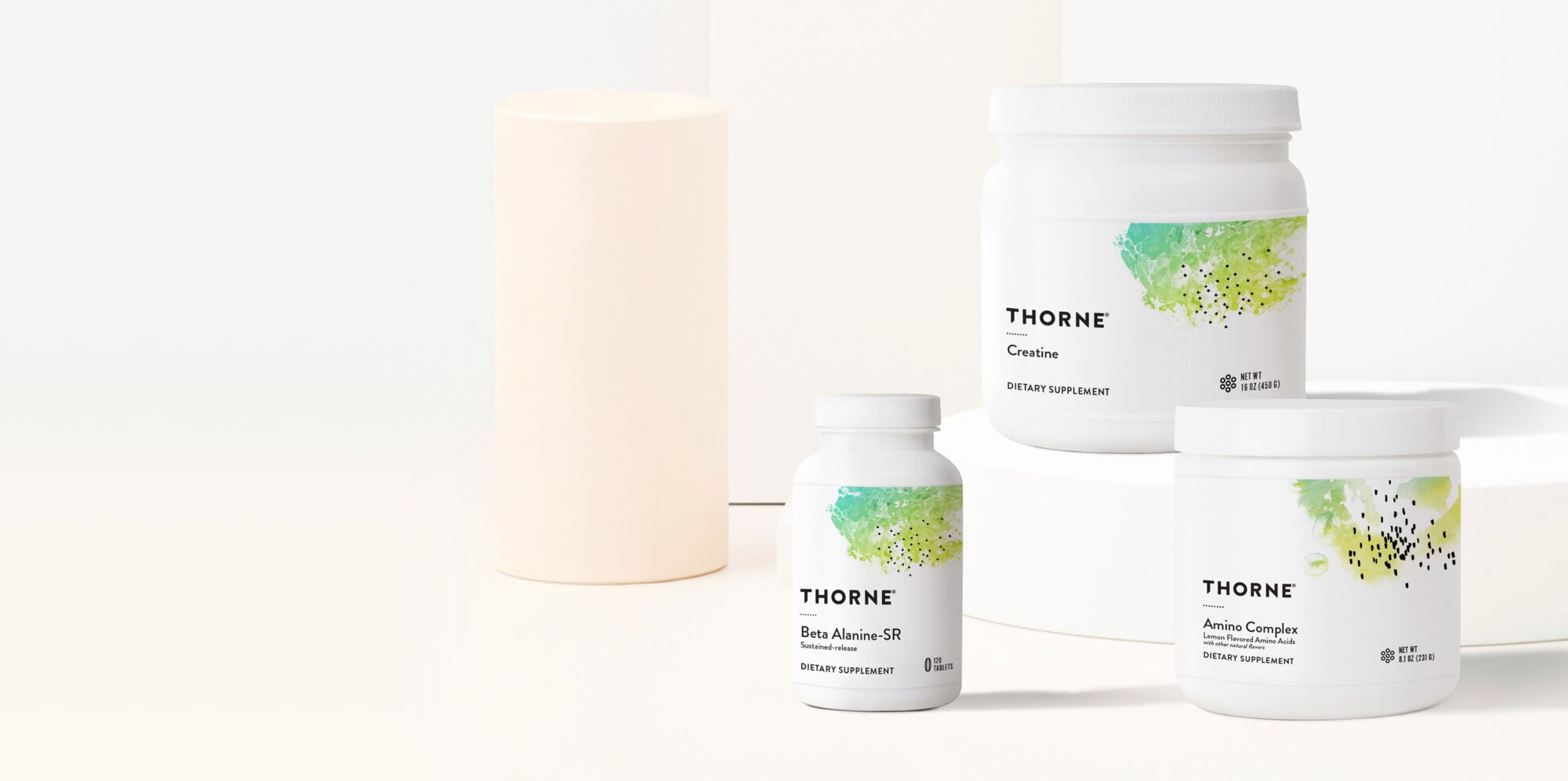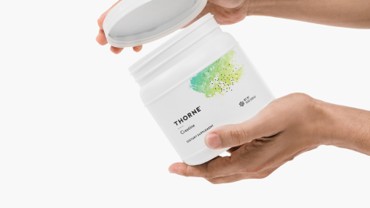Pure creatine monohydrate
Micronized for superior absorption
Power your every move
Your body and mind are capable of more – Thorne Creatine helps you get there. Beyond heavy lifts or faster miles, it sharpens your thinking, strengthens your movements, and helps you push past your limits.*
Pure biology,
precise science.
Creatine is well-researched and readily available, but quality sets results apart. Thorne’s pure creatine monohydrate is micronized and verified at least four times, delivering superior absorption and reliable power for optimal performance.*
For performance, cognition, and endurance*

Push further,
build stronger

Micronized for
maximum energy


Support for body
and mind
The pro standard – for every body
Trusted by athletes, Thorne's NSF Certified for Sport® Creatine supports both hard training and active living.
“Creatine you can trust”
It’s creatine that you can trust and isn’t altered with other ingredients like a number of other companies do. Especially like there are no heavy metals. You can rest assured Thorne is making high-quality creatine.
- Junior I., Verified Buyer
“Important for older, athletic women!”
– Renee J., Verified Buyer
“You don’t have to be a gym bro...”
– Amy M., Verified Buyer
Shop creatine




Thorne's Training Bundle
A trio of performance products designed to help you get the most out of every session.*

Often purchased with creatine



Learn more at Take 5 Daily
FAQ
What does creatine do?
Creatine helps your body quickly produce energy by increasing the availability of ATP, the main energy molecule for your muscles and brain. This supports strength, power, and performance during high-intensity activities, and can also help with mental energy and cognition.*
Will creatine cause water retention or bloating?
Some individuals may notice mild water retention in the muscles when starting creatine, but this effect is usually temporary and varies from person to person.
Who can benefit from creatine supplementation?
Creatine is not just for athletes – anyone can use it! And while creatine is well-known for supporting athletic performance and muscle strength, research shows it offers benefits beyond the gym for a wide range of people, including individuals who follow plant-based diets, as creatine is primarily found in animal products. Women, particularly during different life stages including childbearing years, menopause, and postmenopause, may find unique benefits from creatine supplementation due to hormonal influences on creatine metabolism and storage.*
How does creatine help with cognitive function?
Creatine supports cognition by sustaining brain ATP. About 5% of the body’s creatine is in the brain, where it powers memory, focus, and problem-solving; supplementation raises brain stores and has been shown to improve memory, pattern recognition, and reaction time – especially in people with lower baseline levels such as vegetarians or vegans. Creatine also helps the brain perform under stressors like sleep loss, intense mental work, or low oxygen while reducing mental fatigue.*
Is creatine safe to use?
Creatine is one of the most researched dietary supplements and is generally considered safe for most healthy adults when used as directed. Research – including long-term studies – shows no notable negative side effects for most people. However, it is always best to consult with a health-care practitioner before starting any new supplement, especially if you have underlying health conditions or are taking medications.
What’s the difference between creatine monohydrate and other forms?
Creatine monohydrate is the most researched, effective, and widely used form of creatine. Other forms (like creatine ethyl ester, creatine HCl, or buffered creatine) are marketed for improved absorption or fewer side effects, but research consistently shows that creatine monohydrate is just as effective – if not more so – and is usually the best value.
How should I take creatine?
Creatine is typically taken daily as a powder mixed with water. The most common approach is a “maintanence dose” of 3-5 grams per day. Some people choose to do a “loading phase” (higher doses for a short period), but this is not necessary for everyone.




